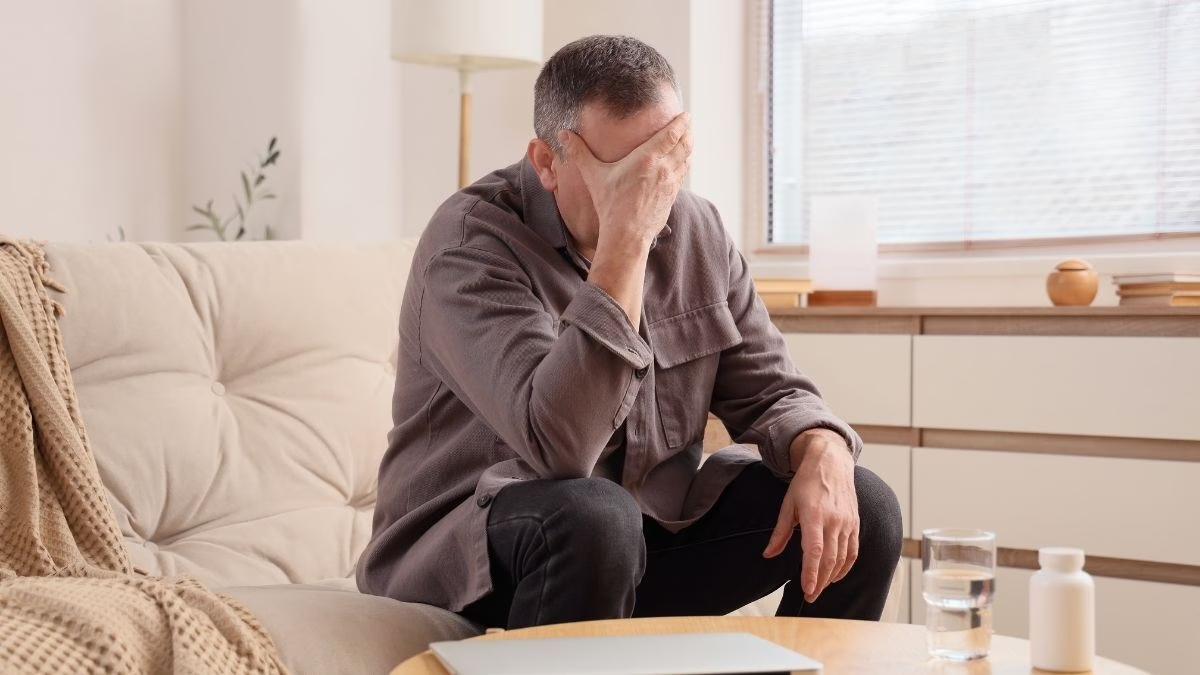he couples who last aren’t the ones who never fight — they’re the ones who learn how to fight well. Every couple argues at times; it’s part of being human and sharing life closely with someone else. But when disagreements start to feel constant or spiral out of control, they can chip away at trust, safety, and emotional closeness. You might find yourselves having the same fights on repeat, walking on eggshells, or feeling like every small disagreement turns into something bigger.
Conflict itself isn’t the problem. What matters is how you handle it. When approached with awareness and care, disagreements can actually become opportunities for understanding each other better. In this blog, we’ll explore why fights happen so often, how to tell the difference between healthy and unhealthy conflict, and practical ways to prevent small arguments from turning into lasting disconnection.
We’ll cover:
- Why constant arguing happens in relationships
- The difference between healthy and destructive conflict
- How to reduce fights before they escalate
- Tools that help stop constant arguing
- When it’s time to seek couples therapy for conflict resolution
Let’s dive in.
Understanding Relationship Conflict: Why Do Fights Happen So Often?
If your arguments seem to appear out of nowhere or repeat in familiar patterns, it’s usually not about the dishes or the tone of voice — it’s about the feelings that aren’t being spoken out loud.
Here are some common reasons fights happen repeatedly:
- Unmet needs: Maybe one partner craves more affection or quality time, while the other feels criticized or unappreciated. When those needs go unacknowledged, resentment builds.
- Stress and external pressure: Work deadlines, financial concerns, or parenting stress can make small issues feel overwhelming.
- Communication gaps: When emotions run high, it’s easy to interrupt, assume, or shut down. Misunderstandings can snowball quickly.
- Attachment triggers: Past experiences — like abandonment or criticism — can resurface in relationships, fueling stronger reactions than the situation warrants.
- Power struggles: Arguments can become battles over who’s “right” rather than opportunities to solve a shared problem.
Recognizing the root causes of conflict helps shift the focus from blame to understanding. Most fights aren’t really about who forgot to take out the trash — they’re about feeling unseen, unheard, or unsupported.
The Difference Between Healthy and Destructive Conflict
A common misconception is that “happy couples don’t fight.” In reality, healthy couples argue — they just do it differently.
Healthy arguing creates growth. Partners stay connected even during disagreements because they express themselves respectfully, listen actively, and repair afterward. They focus on the issue, not each other’s character.
Destructive conflict, on the other hand, attacks the person instead of the problem. It involves criticism, defensiveness, stonewalling, or contempt — what the Gottman Institute calls the “Four Horsemen” of relationship breakdown. These patterns turn discussions into battles and make repair harder each time.
However, in healthy conflict, both partners feel safe even when they disagree. Destructive conflict leaves both feeling disconnected and misunderstood.
How to Reduce Fights in a Relationship Before They Escalate
If your fights keep following the same pattern, change starts with small, intentional shifts. Here are several ways to reduce conflict and keep conversations constructive:
- Pause before reacting. When emotions flare, take a few minutes to breathe or step away. Arguments that start when you’re flooded rarely end productively.
- Use a “soft start-up.” Begin discussions gently instead of with blame. Try: “Can we talk about something that’s been on my mind?” instead of “You never listen.”
- Share your needs clearly. Instead of focusing on what your partner did wrong, express what you need: “I’d love to spend more time together.”
- Listen to understand, not to win. It’s easy to prepare your comeback while your partner is talking, but truly listening to what they mean and feel builds empathy and trust.
- Repair quickly. In tense moments, a small gesture or kind word that shows you care — like “I know we’re both upset, but I love you” — can calm things down fast.
Learning how to reduce fights in a relationship doesn’t mean avoiding every disagreement. It means learning to fight better, with compassion and curiosity instead of defensiveness.
What Communication Tools Help Stop Constant Arguing?
When partners feel stuck in cycles of conflict, improving communication is often the turning point. Here are a few key techniques used by therapists and couples who have learned to navigate tension more effectively:
- Reflective listening: Repeat back what you heard in your own words to confirm understanding. For example: “So you’re saying you felt ignored when I was on my phone?” This helps your partner feel heard and validated, which can quickly lower defensiveness. It also gives you a chance to catch misunderstandings early, before they spiral into bigger conflicts.
- The “I feel” formula: Start statements with “I feel ___ when ___ because ___.” It reduces blame and encourages openness. For example, “I feel hurt when you interrupt me because it makes me feel like my opinion doesn’t matter.” Framing emotions this way helps your partner see the impact of their actions without triggering defensiveness or guilt.
- Daily check-ins: Even five minutes of undistracted connection each day can reduce misunderstandings. Ask, “How was your day?” or “Is there anything you need from me tonight?” These small moments of presence build emotional safety over time. They signal that you’re paying attention and invested in each other’s inner world, even when life feels busy.
- Scheduled problem-solving: If a topic keeps causing fights, set aside calm, intentional time to discuss it instead of addressing it in the heat of the moment. This approach helps both partners show up with clearer heads and a shared goal of resolution. It also turns recurring issues into team efforts rather than ongoing power struggles.
These communication tools do more than solve problems, they strengthen emotional safety and help you feel more connected during hard moments.
When both partners feel safe to express themselves, arguments lose their intensity because neither person feels the need to defend or prove, the focus shifts from winning to understanding.
What Role Does Empathy Play in Reducing Relationship Fights?
Empathy is one of the most powerful ways to prevent fighting in a relationship. When you truly try to see things from your partner’s perspective, the energy of the conversation changes.
Instead of viewing your partner as an opponent, you start seeing them as someone you care about who’s also struggling. You might think, “They’re not trying to hurt me — they’re overwhelmed or scared.” That small mental shift can transform conflict into connection.
Therapists often say that empathy doesn’t mean agreement — it means understanding. You can acknowledge your partner’s feelings (“I see why that upset you”) while still expressing your own truth. Over time, empathy replaces defensiveness with compassion, turning arguments into opportunities for growth.
When Is It Time to See a Couples Therapist for Conflict Resolution?
Sometimes, even with the best intentions, couples reach a point where outside help is needed. If you find yourselves stuck in patterns that don’t change — or if arguments leave you feeling more distant than ever — therapy can make a world of difference.
You might consider seeing a therapist if:
- You have the same fights over and over.
- Small disagreements quickly escalate into major arguments.
- You’ve lost trust, intimacy, or emotional safety.
- One or both of you shut down instead of communicating.
- You can’t seem to find a way to repair after conflict.
If you’re looking for an accessible place to start, OurRitual offers research-backed guidance, interactive exercises, and professional tools that help couples communicate more clearly, manage conflict, and reconnect emotionally. Starting therapy doesn’t just help stop fights — it helps you build a stronger, more secure foundation for your relationship.
Conclusion: Conflict Isn’t the End — It’s a Beginning
Every couple argues. What separates strong relationships from struggling ones isn’t the absence of conflict, but the willingness to repair and learn from it.
When you approach disagreements with empathy, clear communication, and awareness of your patterns, conflict becomes less about “winning” and more about understanding. Over time, those changes can turn heated fights into meaningful conversations that bring you closer instead of pushing you apart.
If constant arguing has left you feeling disconnected, remember: it’s never too late to shift how you communicate. Small changes, practiced consistently, can create lasting peace and deeper love.
FAQs
Is it normal to argue every day in a relationship?
It’s normal for couples to disagree, but arguing every day may be a sign that something deeper needs attention. Occasional disagreements can be healthy, but constant tension often signals unmet needs or poor communication patterns that therapy can help address.
How to reduce fights in a relationship before they escalate?
You can reduce fights before they escalate by pausing when emotions rise, speaking gently, expressing needs clearly, and repairing quickly. Even short breaks or kind statements like “Let’s take a moment to calm down” can shift the energy and prevent escalation.
What communication tools help stop constant arguing?
The best communication tools to stop constant arguing include reflective listening, “I feel” statements, and daily emotional check-ins. These techniques create mutual understanding and reduce defensiveness during disagreements.
What role does empathy play in reducing relationship fights?
Empathy helps reduce fights by turning defensiveness into compassion. When partners try to understand each other’s feelings and perspectives, arguments lose intensity and connection is restored.
When is it time to see a couples therapist for conflict resolution?
It’s time to see a couples therapist when fights feel repetitive, when you can’t find resolution, or when communication consistently breaks down. Therapy provides neutral guidance and teaches practical tools for resolving conflict and rebuilding closeness.
Can individual therapy help with constant relationship fighting?
Yes. Individual therapy can help each partner understand their triggers, regulate emotions, and improve communication. When one person grows in awareness, it often changes the overall relationship dynamic.
How do I handle a partner who always blames or criticizes?
Handling a partner who constantly blames requires setting boundaries and communicating calmly about how their words affect you. Phrases like “I want to understand your point, but it’s hard when I feel attacked” can redirect the tone toward collaboration.
What steps can we take after a fight to repair the connection?
To repair after a fight, take time to cool off, reflect on your part, and express care before re-engaging. Use repair attempts like “I’m sorry that got heated,” or “I still love you — can we start over?” followed by open, calm conversation.






















